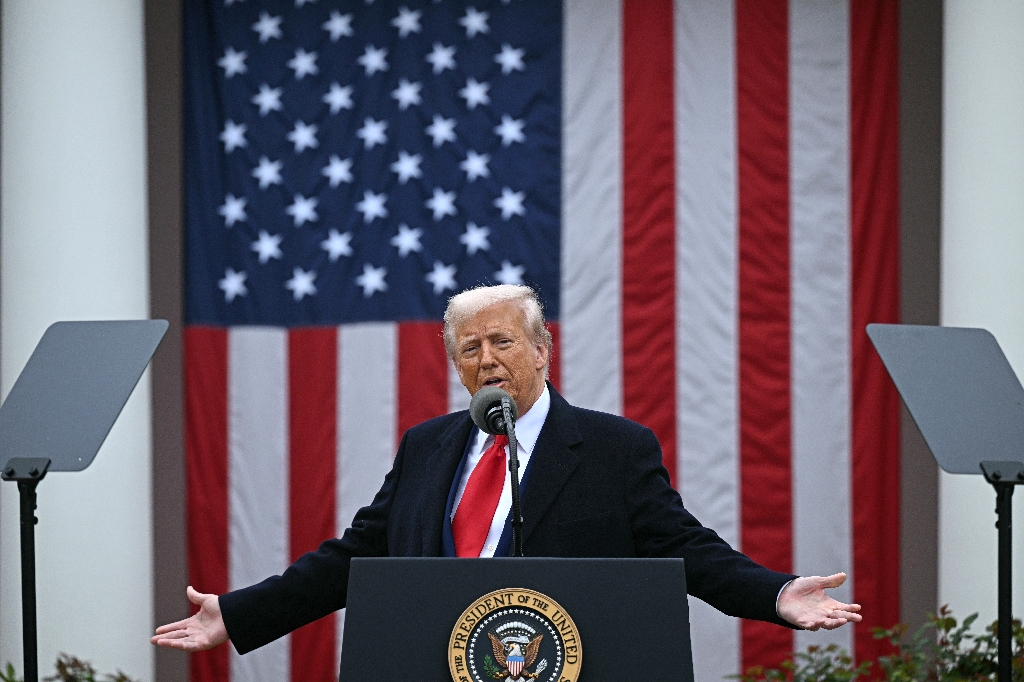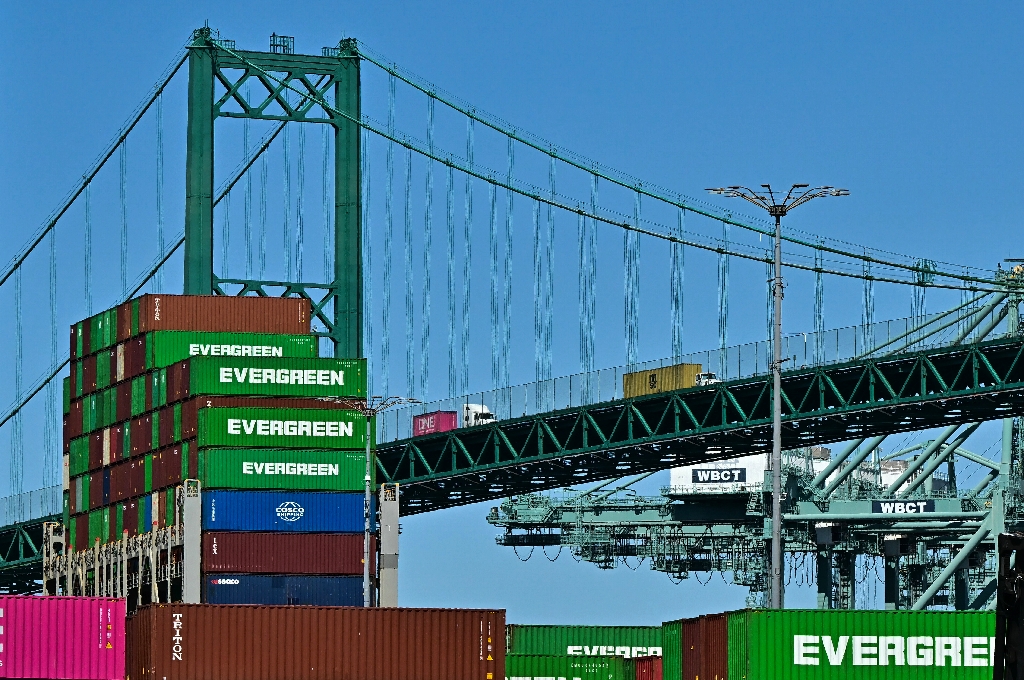(AFP) – President Joe Biden made “ironclad” defense pledges to Japan and the Philippines on Thursday as he hosted his counterparts amid growing tensions with Beijing, whose actions the three leaders described as “dangerous and aggressive.”
Biden cemented the United States’ security commitments in the South China Sea, as repeated confrontations between Chinese and Philippine vessels have stoked fears of wider conflict.
“Any attack on Philippine aircraft, vessels or armed forces in the South China Sea would invoke our mutual defense treaty,” Biden said as he met Philippines President Ferdinand Marcos Jr and Japanese Prime Minister Fumio Kishida at the White House.
An increasingly assertive China claims almost the entirety of the South China Sea, brushing aside competing claims from several Southeast Asian nations including the Philippines.
The tensions, combined with saber rattling over China’s claims to the self-governing island of Taiwan, have prompted Biden to boost alliances in the region.
– ‘Dangerous and aggressive’ –
As they met around a horseshoe-shaped wooden table in the grand East Room of the US presidential residence, the US, Japanese and Philippine leaders hailed the meeting as “historic.”
Without mentioning China by name, they painted their alliance as a bedrock of peace and democracy in the Asia-Pacific region in contrast to authoritarian Beijing.
Marcos, seen as closer to Washington than his more China-leaning predecessor Rodrigo Duterte, said they shared an “unwavering commitment to the rules-based international order.”
Kishida said that “multi-layered cooperation is essential” and that “today’s meeting will make history.”
After their meeting, the three leaders released a “Joint Vision Statement” late Thursday outlining a series of economic and defense cooperation initiatives, while slamming China’s “dangerous and aggressive behavior in the South China Sea.”
The statement said the three nations would conduct joint naval training and exercises along with partners such as Australia.
The United States has a mutual defense pact with Manila but there are fears it could be put to the test, with tensions becoming particularly acute around the Second Thomas Shoal, a remote reef in the Spratly Islands.
The joint statement said the three leaders expressed “serious concern” over China’s “repeated obstruction of Philippine vessels’ exercise of high seas freedom of navigation and the disruption of supply lines to Second Thomas Shoal, which constitute dangerous and destabilizing conduct.”
– ‘Self-doubt’ –
The joint summit came a day after Biden hosted a lavish state visit for Japan’s Kishida during which he unveiled a historic upgrade in defense ties aimed at countering a resurgent China.
Kishida gave a joint address to Congress earlier Thursday in which he urged Americans to overcome “self-doubt” about their role as a global power.
This time directly warning of risks from the rise of China, Kishida said that Japan — stripped of its right to a military after World War II — was determined to do more to share responsibility with its ally the United States.
China hit back, saying the United States and Japan had “smeared” its reputation during Kishida’s state visit.
Beijing foreign ministry spokeswoman Mao Ning said Washington and Tokyo had “attacked China on Taiwan and maritime issues, grossly interfered in China’s internal affairs, and seriously violated the basic norms governing international relations.”
Japan and the Philippines are the latest Asia-Pacific allies to be hosted by Biden, who was joined by Kishida and South Korean President Yoon Suk Yeol at Camp David in August.
But Biden has also moved to manage tensions with China, holding a two-hour phone call with President Xi Jinping last week following a face-to-face meeting in San Francisco in November.
On Wednesday, Biden said the major upgrade in defense ties with Japan was “purely defensive” and “not aimed at any one nation or a threat to the region.” – Danny KEMP
© 2024 AFP




